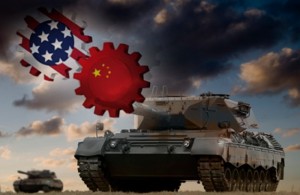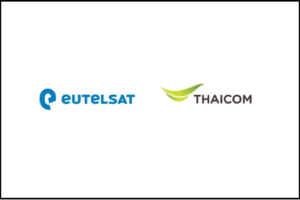 As foreshadowed in iTWire yesterday, the US Congress’s Permanent Select Committee on Intelligence has recommended that the US government should not include equipment from Chinese telecommunications companies Huawei and ZTE in their IT and communications systems. Nor should government contractors.
As foreshadowed in iTWire yesterday, the US Congress’s Permanent Select Committee on Intelligence has recommended that the US government should not include equipment from Chinese telecommunications companies Huawei and ZTE in their IT and communications systems. Nor should government contractors.
The recommendations come as no surprise – leading members of the committee had already said that the companies posed security risks. The report had also been widely leaked beforehand.
But the publication of the report makes it all official. Its comments are “recommendations”, but in the current security environment they may as well be written in stone. The report has ramifications for Huawei Australia, which has had similar but less formal adverse findings against it by a parliamentary committee (leading some Australian press outlets to say the USA is “following Australia’s lead”).
It is now extremely unlikely that Huawei will be able to supply equipment to the NBN, or to other Australian government projects, for the foreseeable future. ZTE is also affected. It also has a presence in Australia, most notably as supplier of many of Telstra’s low end home brand mobile phone handsets.
The report’s recommendations are couched in strong language. No weasel word bureaucratese here:
- US government systems, particularly sensitive systems, should not include Huawei or ZTE equipment, including component parts. Similarly, government contractors – particularly those working on contracts for sensitive US programs – should exclude ZTE or Huawei equipment in their systems.
- The Committee on Foreign Investment in the United States (CFIUS) must block acquisitions, takeovers, or mergers involving Huawei and ZTE given the threat to US national security interests.
- Private-sector entities in the USA are strongly encouraged to consider the long-term security risks associated with doing business with either ZTE or Huawei for equipment or services. US network providers and systems developers are strongly encouraged to seek other vendors for their projects. Based on available classified and unclassified information, Huawei and ZTE cannot be trusted to be free of foreign state influence and thus pose a security threat to the USA and to our systems.
It doesn’t come much clearer than that. There is no room for appeal, no comeback. The only way forward for Huawei and ZTE is to demonstrate over time that they will change their spots. That will take years, and given the increasing tension between the USA and China, it may never happen. Huawei’s rumoured stock market listing in the USA – and Australia – is one way it will attempt to do this.
The report also says that Huawei did not fully cooperate with the investigation and was unwilling to explain its relationship with the Chinese Government or Chinese Communist Party, and that “credible evidence” exists that Huawei fails to comply with US laws. Similar criticisms were made of ZTE.
Huawei, obviously anticipating the outcome, immediately released a long statement rebutting the report’s findings. “The United States is a country ruled by law, where all charges and allegations should be based on solid evidence and facts. The report conducted by the Committee, which took 11 months to complete, failed to provide clear information or evidence to substantiate the legitimacy of the Committee’s concerns.
“We had hoped to ensure that the investigation would be fact-based and objective in its review of our business activities and the global issue of cyber-security. Over the past 11 months, Huawei has cooperated with the Committee in an open and transparent manner, and engaged in good faith interaction. However, despite our best effort, the Committee appears to have been committed to a predetermined outcome.
“The ranking member of the Committee stated at the hearing that the investigation by the committee ‘is not political jousting or trade protectionism masquerading as national security’. Unfortunately, the Committee’s report not only ignored our proven track record of network security in the USA and globally, but also paid no attention to the large amount of facts that we have provided.
“Even before the investigation began, the chairman of the committee advocated to media that ‘I stand by my caution to the American business community about engaging Huawei technology until we can fully determine their motives’”.
Huawei says the report “employs many rumours and speculations to prove non-existent accusations.” It also says the report does not address the global realities of the IT industry, where “almost every ICT firm is conducting R&D, software coding and production activities globally. They share the same supply chain, and the challenges on network security is (sic) beyond a company or a country.”
“We have to suspect that the only purpose of such a report is to impede competition and obstruct Chinese IT companies from entering the US market.”
So there. Not much room for compromise. ZTE published a similar statement. “ZTE has set an unprecedented standard for cooperation by any Chinese company with a US congressional inquiry. ZTE has presented the Committee with ample facts that demonstrate ZTE is China’s most transparent, independent, globally focused, publicly traded telecom company. ZTE is listed on the Hong Kong and Shenzhen Stock Exchanges. The company already is recognized as a Trusted Delivery Partner by 140 governments and 500 network carriers.”
There was been no real fallout yet in Australia. The Parliamentary Joint Committee on Intelligence and Security has already made its deliberations regarding Huawei. They are now very unlikely to change their views.A Huawei Australia spokesman told iTWire that “the facts speak for themselves. You don’t become the world’s number-one telecommunications equipment provider unless your partners trust your technology, your products, and your staff. Huawei works with 45 of the world’s top 50 operators and all major Australian operators, and our technology is second to none. Those are the facts today and those will continue to be the facts, political agendas aside.”
“Political agendas aside”. The problem for Huawei, and for ZTE, is that political agendas are never left aside. This is bad news for the two companies involved, but it is also bad news for the IT and telecommunications industries, for globalisation, and for international relations.







